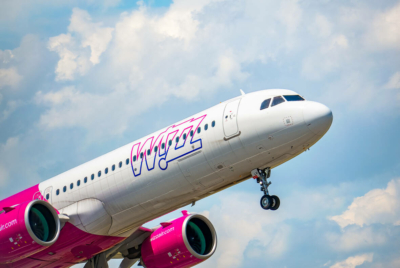UK Government bails out Hungary’s Wizz Air with £300m – whilst Virgin Atlantic is turned down
Links on Head for Points may support the site by paying a commission. See here for all partner links.
Doing a bailout quickly and fairly is not possible, unfortunately. There will always be holes in the system.
As we have covered before, Virgin Atlantic is not able to access the Government’s coronavirus borrowing facility due to a technicality.
Any business which has issued tradeable debt can borrow from it. Businesses which have not issued tradeable debt cannot. easyJet has tradeable debt and got £600 million. IHG also took £600 million yesterday despite not needing it. Virgin Atlantic has no tradeable debt.

Wizz Air has been approved for a soft loan of £300 million
Virgin Atlantic may not be able to borrow from the UK Government, but Hungary’s Wizz Air can.
It has put out a statement to the Stock Exchange stating that the UK Government has given it permission to draw down money from the Bank of England’s Covid Corporate Financing Facility.
The exact amount will depend on Wizz Air’s financial status but, given the F3 rating it holds from Fitch, it should qualify to borrow £300 million at an interest rate of just 0.6%.
I thought Wizz Air didn’t need money?
It doesn’t.
Wizz Air is the financially strongest airline in Europe. As I mentioned in our Lufthansa article on Saturday, an analyst report from Citi last week estimated that Wizz has enough cash in the bank to survive for 22 months without flying. This assumes that it repays all outstanding ticket holders IN CASH and continues to pay all of its bills on time.
Wizz Air is borrowing a potential £300 million from the UK Government because it is dirt cheap money. It has no need for the funding. The money will, most likely, to be used to repay more expensive bank and bond debt.
How can a Hungarian company borrow £300m at 0.6% from the UK Government?
Companies are allowed to borrow from the Covid Corporate Finance Facility, according to the Bank of England website, if:
In practice, firms that meet this requirement would normally be: UK incorporated companies, including those with foreign-incorporated parents and with a genuine business in the UK; companies with significant employment in the UK; firms with their headquarters in the UK.
We will also consider whether the company generates significant revenues in the UK, serves a large number of customers in the UK or has a number of operating sites in the UK.
Whilst its head office and management team are based in Budapest, Wizz Air is listed on the London Stock Exchange because its domestic stock market is too small and illiquid. It also has a UK operating subsidiary which is the legal operator of the ten aircraft it bases in the UK.
You can see the Stock Exchange announcement here.
Given the relatively soft criteria for accessing this money, as long as you have traded debt, Wizz Air may not be the last foreign airline to seek a UK-funded bailout whilst Virgin Atlantic teeters on the brink.
PS. The UK Government will make a profit on this loan, of course, assuming that Wizz Air survives. The current 3-year UK Government bond yield is 0.1% so there is a profit to be made by raising money to lend to Wizz Air at 0.6%.









Comments (198)